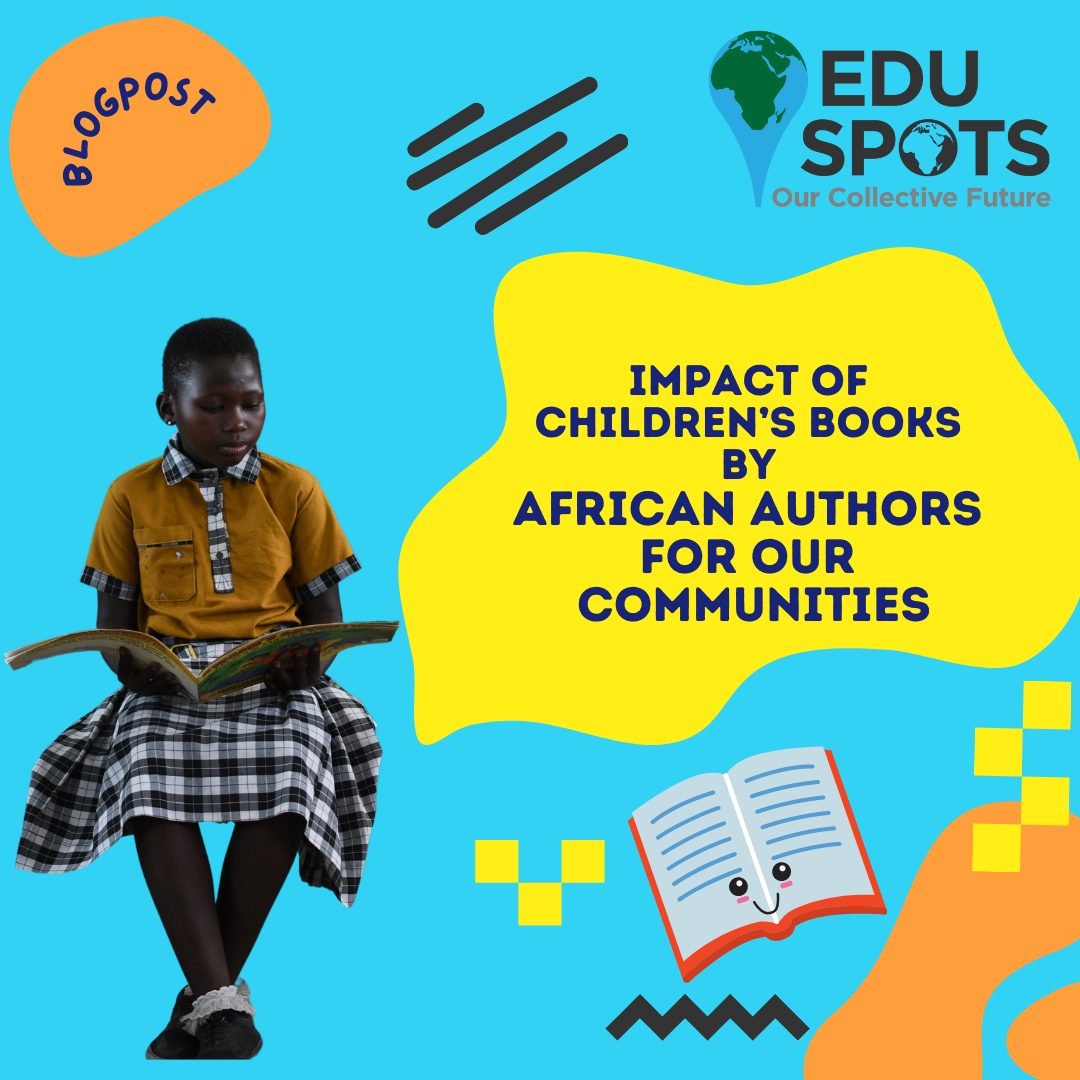Before independence and even onwards, children in West African countries have been reading more books written by European writers and writers from North America. These books have contributed immensely to the education and entertainment of children. As time progressed, African writers used traditional African folklore, legends, and ancient myth to create exciting worlds in children’s literature. These writers have continued to improve their craft by delving into diverse genres of children’s books, which keep evolving to date, while children continue to ask for more of these kinds of books.
One of the most powerful frameworks for children’s books is Dr. Rudine Sims Bishop’s Mirrors, Windows, and Sliding Glass Doors. According to Dr. Rudine, books are mirrors when readers see their lives reflected in the pages. Books are windows when they allow readers a view of lives and stories that are different from their own. Books become sliding glass doors when readers feel transported into the world of the story and when they feel empathy for the characters.
From this framework, we see that books by African writers can be all three: mirrors, windows, and sliding glass doors, and that explains why children who read captivating books that reflect their own lived experiences or lived experiences of someone they know resonate well with them. Seeing their culture and surroundings reflected in literature motivates them; it helps them feel valued and appreciate their place in the world.
According to Chimamanda Ngozi Adichie, without enough books by African writers, African children have to read books that don’t portray realities they can identify with. While growing up, she read multiple European and American books and developed a “parallel imaginary life.” For Adichie, for children to escape having more imaginary realities in literature, which tends to be lost on them, they should be reading more books by African writers; which means there needs to be more African writers writing books for children. For children, Adichie says, based on her own experience, reading about realities they can relate to helps build a love of literature.” My perception of literature changed when I started reading African literature,” she says.
Adichie expounds this idea in her TED Talk, “Danger of a single story” – https://www.youtube.com/watch?v=F4a7oQ5vwP4
How has African children’s literature changed over time, and how has that impacted children in our communities? :
Representation and diversity:
African writers are taking charge of telling their own stories in children’s books and the stories they would have loved to read as children, which has led to more diverse representations of African cultures. They bring unique perspectives never seen in popular mainstream books, which helps broaden children’s understanding of the world in which they live. African writers have delved into diverse themes and shifted the focus from traditional stories and folklore to contemporary issues that affect children today. Children are glued to these books because they can relate to the experiences shared in them.
Empowerment:
Books by African authors can empower children from African communities by giving them a sense of identity, belonging, and pride in their heritage. This empowerment can help to combat negative stereotypes and promote positive self-image and high self-esteem. This is incredibly impactful when young girls see other young African girls like them playing essential roles in the books they read. It gives these young readers a confidence boost.
Empathy and understanding:
Reading books by African authors can help children develop empathy and understanding for people who may be different. Through the stories of the characters in these books who are like peers, children can gain insight into the lives and struggles of people from diverse backgrounds, which can help to break down stereotypes and promote greater understanding and empathy.
Education:
Books by African writers can educate and raise awareness about important issues such as colonialism, racism, gender inequality, and social justice. Through their writing, African authors can shine a light on these issues plaguing our communities and inspire readers to take action to address them.
Cultural preservation:
Books by African authors can help to preserve African cultures, traditions, and histories, which may otherwise be lost or overlooked. By reading these books, children can learn about the rich and diverse cultures of Africa and appreciate the contributions of African people to the world. In addition, by reading about different cultures, children can learn to appreciate and respect them, promoting greater understanding and cooperation between different communities.
At EduSpots, we have developed our own storybook series, Kwame’s Adventures, set in Spot communities featuring our volunteers and students. The key aim of this series is to enable Ghanaian children to see their communities represented in fiction, creating a series of books with relatable characters and events, which will increase the children’s interest in reading more widely. We also continue to support our libraries across rural Ghana with books by African authors.
Should you fancy supporting us, please drop a donation to https://lnkd.in/dZdpd87f
Written by Farida Yesufu, Head of Partnerships and Communications, EduSpots
2 thoughts on
Leave a Reply
You must be logged in to post a comment.




This is a very insightful piece. I believe we Africans should help our children to love reading African books.
I am an OHBD children’s book author; I am originally from Ethiopia. I believe we Africans have many hidden legends, such as one of the world’s seven wonders, the “Lalibala Church.” As a result, we must follow in the footsteps of the next generation and educate them through stories about African cultures, traditions, and histories.